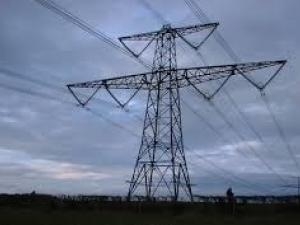
Parliament has made the case — and it has been accepted “in principle” by the Public Utilities Regulatory Commission (PURC) — that the industrial sector must pay less for electricity than the domestic sector.
“We have intimated to the PURC for Ghana to follow international best practices when it comes to tariff setting. Globally, industries pay less for power than households. But unfortunately in Ghana we have turned logic on its head, whereby industries pay more than households,” Dr. Kwabena Donkor, Chairman of the Parliamentary Select Committee on Mines and Energy, told managers of steel companies in Tema on Tuesday.
Dr. Donkor, who led a team of parliamentarians on a visit to a number of industries in Tema, added: “We have made a presentation to the PURC and it has accepted it in principle. What it has to do now is come up with an implementation plan. You will find that in all future tariff adjustments we will begin to make some progress in terms of charging industries the real cost of sending power to them.
“It is cheaper to send power to industries than to households, because the volume of power you can drop in a single industry and the cost of doing that is far cheaper than dropping the same volume of power in communities.”
The PURC earlier this month announced a 6.54 percent increase in electricity tariff amidst power rationing, making it the third time this year that the Commission has increased power tariffs — accumulating a 28.27% rise in electricity tariffs since the beginning of the year.
Aside from the erratic nature of supply, the cost of power has been a major source of worry for industries — gobbling up as much as 55% of non-raw material costs for a company like Sentuo Steel Limited, which was set up two years ago and currently produces about 120,000 tonnes of iron rods per annum, which represents 40% of its capacity.
Its Board Chairman George Andoh told the parliamentarians that competitively-priced power is essential if the country is to be industrialised.
“In our quest to find energy for Ghana, let us not also forget that the energy has to be competitive. I think quite a lot of the thermal energy we are generating now is not competitive,” he said.
At Tema Steel Company Limited, a director — M.J. Patel — told the parliamentarians that high cost of electricity is a major problem for the company.
While power tariffs hover around four to five cents per kilowatt hour in Europe and America, he said they have to grapple with as much as 12 cents and above.
At Aluworks, the MD, Kwesi Okoh said from GH₵245,100 per month in 2013, the cost of power for the company has gone up to GH₵500,000 per month in 2014, making it difficult for them to roll-out their investment plans.
The cost of power, he said, has been growing exponentially due to the automatic tariff adjustment mechanism, while efficiency levels have not seen an equal improvement.
“Elsewhere in the world industries pay less for electricity so they can provide jobs and pay salaries. When people take their salaries then they pay higher for electricity. Which would you prefer? That industries pay less and provide jobs, or they pay more and are not able to provide jobs?” Kwesi Akoh said
Data from the Energy Commission shows that while power consumption in the industrial sector saw no increase between 2000 and 2011, consumption in the residential and non-residential class increased 100 percent during the period.




